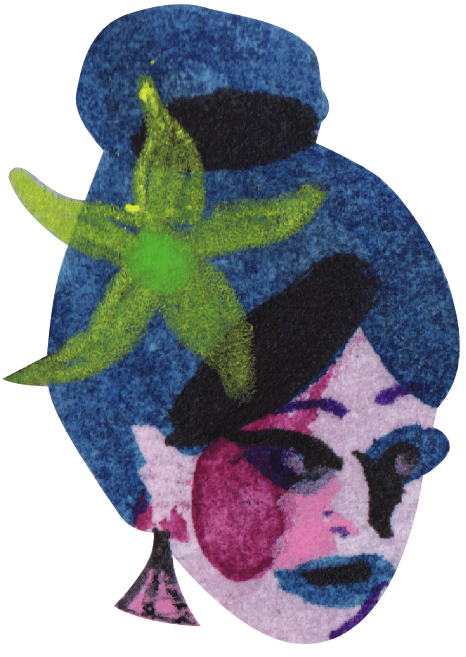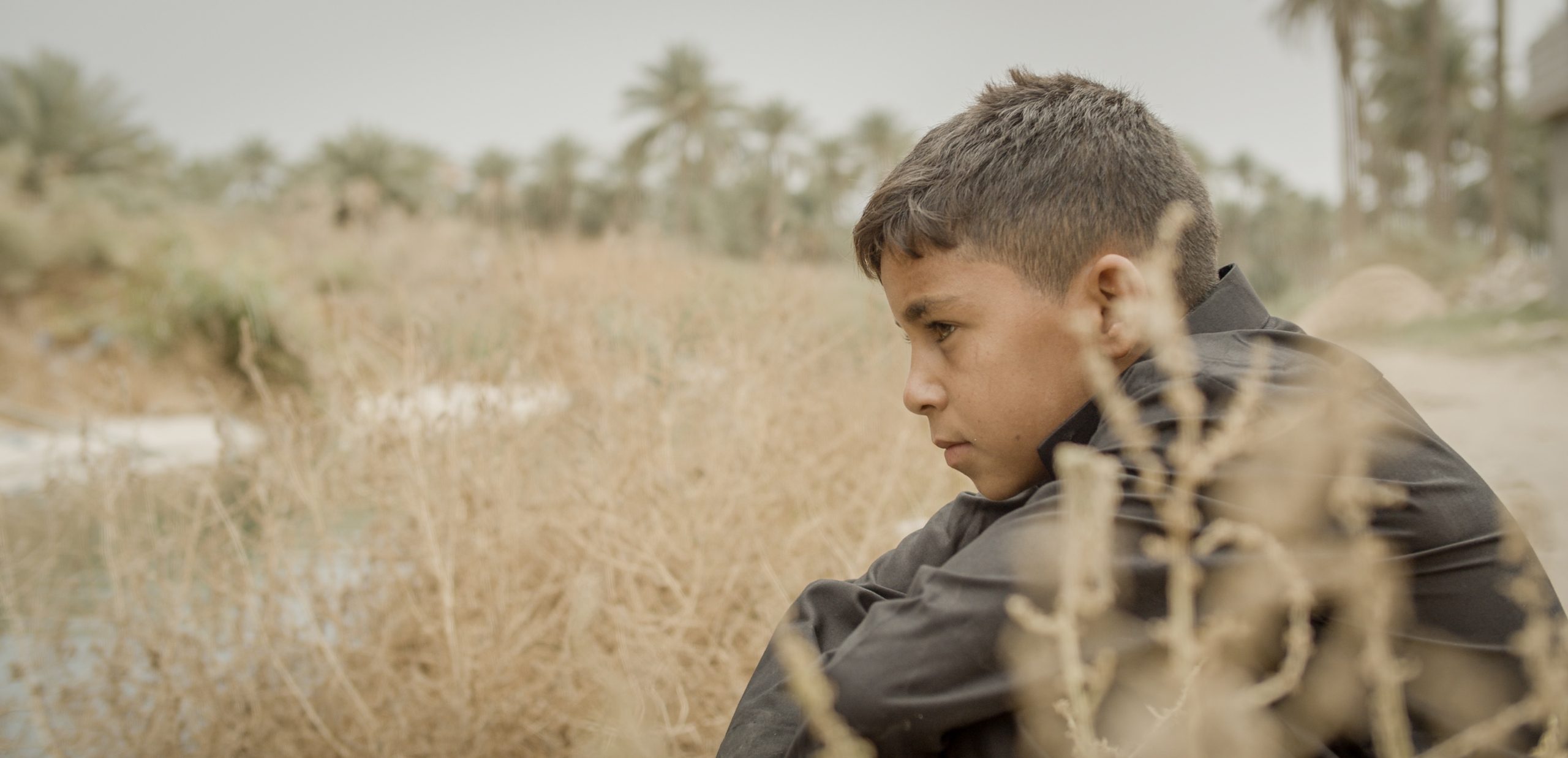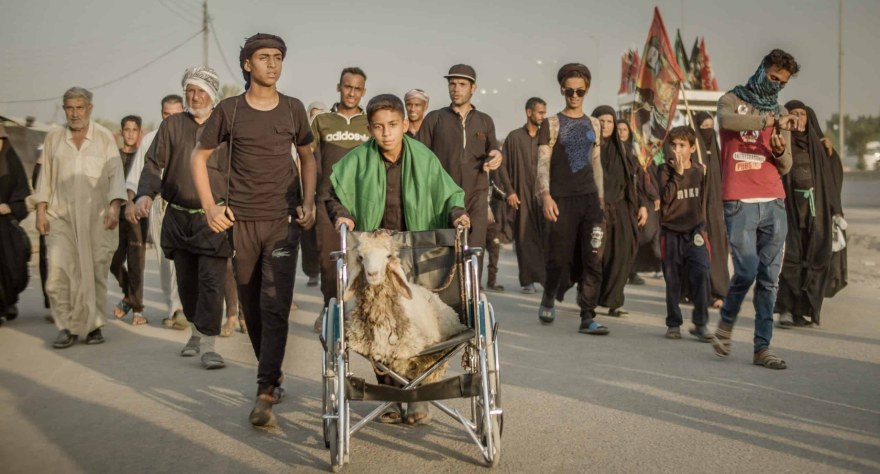Goûter avec Ali and His Miracle Sheep (Ali et son mouton miraculeux)
Entretien avec Maythem Ridha, réalisateur de Ali and His Miracle Sheep (Ali et son mouton miraculeux)
 Comment avez-vous rencontré Ali et découvert son destin ?
Comment avez-vous rencontré Ali et découvert son destin ?
En 2018, je tournais un film en Irak et poursuivais un projet de photographie intitulé « Tear marker ». J’ai rencontré un groupe de personnes qui allaient sacrifier un mouton pour honorer l’âme des membres de leur famille décédés. Je les ai photographiés et ces images continuent de me hanter. J’ai rencontré des enfants ayant perdu leur père dans les combats contre Daech. Ils étaient de simples fermiers et ont été brutalement abattus en combattant des terroristes surentraînés… Ils laissent derrière eux une nouvelle génération d’Irakiens traumatisés, après des décennies de tyrannie et de guerre. J’avais déjà pris ma décision : pour raconter des histoires irakiennes plus puissantes, il fallait que je me forme pour devenir psychothérapeute et j’ai notamment travaillé sur les traumatismes de l’enfance. Je suis parti à la recherche de personnages forts pour donner vie à l’histoire que ces photographies éveillaient en moi. J’ai décidé de travailler avec un format hybride (drame et documentaire) et de créer un docu-fiction qui symboliserait ce traumatisme national. Je suis retourné en Irak, et après de longues recherches et plusieurs rencontres dangereuses dans la campagne, nous sommes passés en voiture devant une femme qui brossait et parlait à ses bœufs. J’ai demandé au chauffeur de s’arrêter et nous avons commencé à échanger avec elle. Elle m’a demandé à quelle tribu j’appartenais et il se trouve qu’elle venait du même clan que moi. Elle m’a accueilli au village comme un membre de sa famille qu’elle aurait perdu de vue depuis longtemps. C’est comme ça qu’elle est devenue la grand-mère du film. Son petit-fils s’est immédiatement avancé. Je lui ai demandé s’il était prêt à sacrifier le mouton que je lui donnerais pour le salut de l’âme de son père décédé. Il a accepté et ça a marqué le début de notre aventure. J’ai organisé un atelier avec eux. Comme ce ne sont pas des acteurs professionnels, ils jouent simplement leur propre rôle dans des scènes proches de leur réalité. Je me suis servi d’ »idées brouillonnes » comme points de départ pour improviser en amont du tournage.


Tous les personnages ont donné leur accord pour participer. De nombreux « incidents » et personnages secondaires sont arrivés en cours de route. Nous avons dramatisé leur vie pour la resituer dans la marche sacrée. Nous avons parfois interagi avec eux selon la technique du « théâtre invisible ». Dans le film, la scène du miracle est totalement improvisée : le mouton était malade et s’est évanoui dans la rue. Nous avons d’abord cru qu’il était mort, mais il a repris connaissance. Un vieil homme est sorti de nulle part et a annoncé que le mouton était un miracle. Des pèlerins se sont approchés de nous et ont commencé à crier et à célébrer ce moment. Alors que nous marchions et tournions dans le désert, nous allions moins vite que les autres pèlerins et la réputation de « miracle » nous a précédés et a atteint les autres tentes avant nous, à tel point que nous sommes devenus le premier sujet de conversation parmi les 10 millions de pèlerins rassemblés à Kerbala.

Le tournage s’est révélé vraiment très compliqué. Nous devions être sûrs d’être sur place au bon moment pendant que des millions de personnes étaient rassemblées à Kerbala. Nous pensions qu’en 2019, avec la défaite de Daesh, il nous serait possible de tourner et de profiter d’une période pacifique en Irak. Mais nous nous sommes trompés. Un soulèvement de masse a éclaté une semaine après le début de la pré-production, et a rapidement été émaillé de violences, provoquant la mort de plus de 500 personnes. Le gouvernement a imposé des couvre-feux et coupé les lignes téléphoniques et les accès à Internet. Nous avons dû nous rabattre sur les stylos et le papier et recourir à des techniques de communication un peu dépassées comme envoyer un assistant transmettre des messages et des instructions. Si nous partions tourner le matin, il nous arrivait de nous retrouver devant une route bloquée au moment de rentrer. Parfois, des paramilitaires nous tenaient en joue aux barrages pendant qu’ils vérifiaient l’histoire qu’on leur avait racontée. Les émeutes ont également obligé le gouvernement irakien à démissionner. Par conséquent, nos financements octroyés par le service du cinéma du ministère de la Culture irakien se sont également envolés. Nous nous sommes donc tournés vers l’autofinancement et avons recherché des collaborateurs et des soutiens. Sans oublier que notre mouton est tombé gravement malade et que nous avons dû réécrire le scénario pour le faire concorder avec la réalité. Les difficultés ne se sont pas cantonnées au tournage et ont également affecté l’étape de postproduction. À cause du confinement, nous avons été contraints de travailler à distance en étant répartis dans des pays et des régions différents sur des fichiers 4k très volumineux.


Très jeune, j’ai commencé à faire de la photographie, et ça continue de faire partie de mon processus créatif. J’ai travaillé dans la réalisation pour la télévision pendant un temps, puis j’ai réalisé des documentaires pendant plusieurs années, avant d’intégrer la National Film and Television School (NFTS) où j’ai découvert plusieurs manières d’aborder le genre du drame. L’idée d’associer ce que j’aimais dans les drames et les documentaires et de recourir à un style hybride pour réaliser des films avec une forme et un vocabulaire uniques correspondant aux histoires que je voulais raconter m’attirait beaucoup. J’explore aussi la réalisation immersive en incorporant du drame, des documentaires et de la narration en réalité virtuelle. Je m’intéresse à de nombreux sujets, notamment comment les histoires, les mythes et la mémoire collective peuvent modeler qui nous sommes. Je fais aussi des expérimentations pour montrer comment le cinéma et la psychothérapie peuvent aller de paire. Tous ces sujets seront présents dans mes prochains films.

Il y en a beaucoup, mais si je ne devais en choisir qu’un seul, je dirais Le Ballon rouge, un court métrage de 34 minutes réalisé par Albert Lamorisse, sorti en 1956. C’est une très belle narration, poétique et purement visuelle, qui atteint des sommets. Il a remporté la Palme d’or à Cannes, ainsi qu’un Oscar. Pour moi, les courts métrages sont essentiels, et parfois plus exigeants que les longs métrages. Ils vous permettent d’expérimenter et d’employer n’importe quelle forme et n’importe quel vocabulaire, mais d’un autre côté, ils vous imposent d’être concis et de maîtriser votre art.

Un bon film raconte souvent une histoire plus profonde que celle qui se trouve au premier plan, et qui touche l’essence de notre être en nous guérissant, en jouant un rôle cathartique ou en provoquant le changement. Il peut s’agir de quelque chose qui nous met au défi et nous permet de réévaluer ce que signifie être humain aujourd’hui.
Pour voir Ali and His Miracle Sheep(Ali et son mouton miraculeux), rendez-vous aux séances de la compétition internationale I6.








